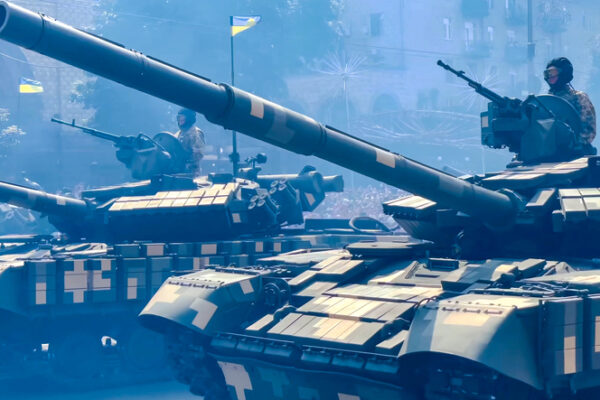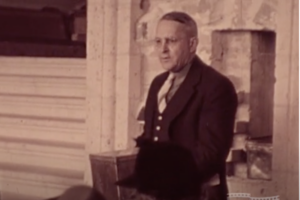The Russian war in Ukraine has justifiably brought two European international security organizations back to the forefront of the world’s attention: the North Atlantic Treaty Organization (NATO) and the European Union (EU). The world looks to both as the conflict rages and probably will continue to do so as it ends.
But there is another — and much less known — organization that is arguably still vital to preserving what is left of peace on the European continent after the conflict in Ukraine ends: the Organization for Security and Co-operation in Europe (OSCE). Headquartered in Vienna, it is the world’s largest regional security organization, stretching (in the organization’s words) from Vancouver to Vladivostok.
The OSCE should be the forum where eventual cease-fire and peace negotiations take place between Russia and Ukraine. It must serve as the forum where both sides meet to determine the future of Europe. It was created to do just that, born from the deepest days of the Cold War when nuclear annihilation seemed not just possible, but likely. And its sole purpose was to keep each side of the divide talking to the other, even when such talks seemed pointless or hopeless.
The organization takes what it calls a “comprehensive approach” to security, refusing to differentiate between politico-military, economic and human aspects. Clearly, the Russian military offensive into Ukraine violated each of these core principles, rendering them moot, or even meaningless. The Russian actions have been rightfully condemned by the United Nations and practically every participating state of the OSCE via their foreign ministries or heads of state.
But Russia remains a participating state of the organization, and because all decisions are made by consensus, no such condemnation of its actions has been made by the organization itself. The inability to sanction a participating state for invading another is egregious enough. But outside of specialists in regional security organizations, few casual observers know or even care that the OSCE exists. Already ignored, it suffers even greater ignominy and irrelevance through its utter inability to create or maintain security or cooperation in Europe.
It is clear that the organization as currently structured cannot be a part of rebuilding the shattered European security architecture. The rules, norms and decision-making procedures originally set forth are now rightfully seen as part of a false peace, an interregnum between the Cold War and whatever new era in which we now find ourselves.
The OSCE needs to go back to the future, in this case back to its original purpose, and focus on keeping dialogue open between countries who no longer have any reason to trust each other. Doing this would not diminish the organization, but rather allow it to rediscover its resolve. It would give the OSCE the important task of serving as an honest broker where painful but necessary talks to rebuild both the peace and whatever limited version of trust is possible when the fighting stops.
This cannot be done via NATO, which despite its evolution into more of a comprehensive security organization still remains at its core a defensive alliance against Russian aggression. It cannot be done via the European Union, which despite its own evolution into a more robust security actor still remains a minor player in the European security architecture. It cannot be done by the United Nations, which has issues beyond Europe that rightly demand its attention. Instead, it should fall to the OSCE.
But it cannot be the organization that has not held a summit meeting since 2010. It must be an entity that is reinvigorated through a recommitment to its original purpose: creating dialogue. Major participating states such as the U.S. and Russia — but also minor ones like the neutral states of Finland, Ireland, Austria and Sweden — must reconfirm their commitment to that difficult dialogue and open consultation.
The OSCE still has a clear purpose: keep the lines of communication open between adversaries, even under impossible odds. Only then will there emerge a glimmer of hope that Europe can avoid the worst of what might transcend this Cold War 2.0, with consequences too dire to imagine.
Michael Mosser is an associate professor of instruction in the Department of Government and the international relations and global studies program at The University of Texas at Austin.
A version of this op-ed appeared in The Hill.




